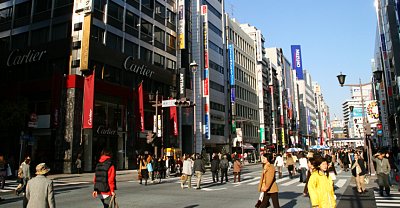
The Ginza is Tokyo's most famous upmarket shopping, dining and entertainment district, featuring numerous department stores, boutiques, art galleries, restaurants, night clubs and cafes.
One square meter of land in the district's center is worth more than ten million yen (more than 100,000 US dollars), making it the most expensive real estate in Japan. It is where you can find the infamous $10 cups of coffee and where virtually every leading brand name in fashion and cosmetics has a presence.
From 1612 to 1800, today's Ginza district was the site of a silver coin mint (Japanese: ginza), after which the district was eventually named. The Ginza evolved as an upmarket shopping district following the 1923 Great Kanto Earthquake.
A visit to the Ginza is most pleasant on a weekend afternoon, when the central Chuo Dori gets closed to traffic and become a large pedestrian zone. The closure takes place from 14:00 to 17:00 on Saturdays and from 12:00 to 17:00 on Sundays (until 18:00 from April through September).
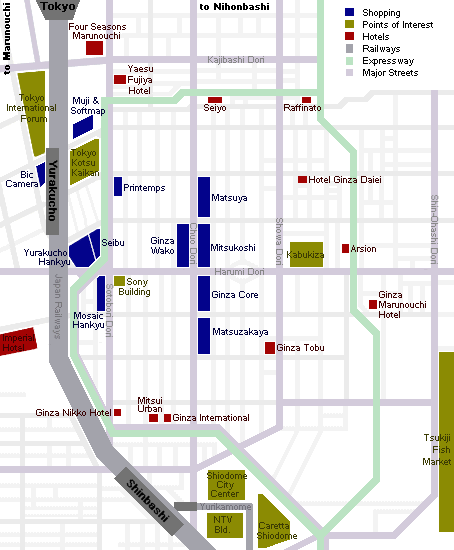
Points of Interest:
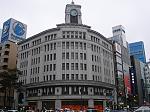 |
Ginza Wako
Built in 1932, the clock tower of the Ginza Wako building is the symbol of the Ginza, standing at the northwest corner of the district's centrally located junction of Chuo and Harumi Dori. Inside the building, jewelry and other luxury items are sold. |
| 10:00 to 18:30. Closed on Sundays and public holidays. |
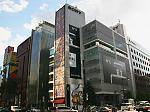 |
Sony Building
The newest products by Sony, including DVD recorders, televisions, cameras, audio sets, mobile phones, computers and Play Station products, are displayed to the public in the showrooms in this building. There are also a few shops, restaurants and cafes. |
| Showrooms open daily 10:00 to 19:00, except December 31 and January 1. Admission: Free. |
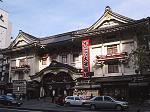 |
Kabukiza Theater
Kabuki pieces are performed around the year in this theater which was opened in 1889. Shows typically last three to five hours and are divided into three or four acts. Tickets are sold for either a whole show or just a single act. English earphone guides are available. |
| Two shows per day are performed on most days of the year, one matinee show (usually starting at 11:00) and one evening show (usually starting at 16:30). Consult the website (see external links below) for details. Ticket prices typically range from 2,000 to 20,000 Yen for a whole show (depending on the seat and show) or 500 to 1,500 Yen for just one act. Earphone guides cost 650 Yen for a whole show or 400 Yen for just one act. |
Department Stores:
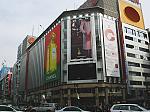 |
Mitsukoshi
The Ginza store of the Mitsukoshi department store chain was opened in 1930 and offers goods and services on twelve floors. Mitsukoshi's history reaches back to the year 1673. |
| Daily 10:00 to 20:00. |
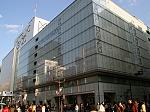 |
Matsuya
The Ginza store of the Matsuya department store chain offers fashion, foods, household goods, a pet shop, a travel agency and an exhibition hall on its eleven floors. |
| Daily 10:00 to 21:00. |
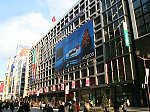 |
Matsuzakaya
The Ginza store of the Nagoya based Matsuzakaya department store chain offers goods and services on ten floors. Matsuzakaya has a history that reaches back to the year 1611. |
| Daily 10:30 to 19:30 (until 20:00 on Thursdays, Fridays and Saturdays). |
 |
Printemps
The Ginza store of the Paris based Printemps department store chain offers fashion, accessories, wines, foods and restaurants on ten floors. Printemps Ginza was opened in the year 1984. |
| Daily 10:30 to 20:30 (until 19:30 on Sundays and Mondays). |
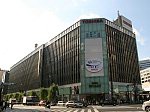 |
Hankyu
Osaka based Hankyu operates the "Yurakucho Hankyu", a conventional department store in the Yurakucho Marion Building and "Mosaic Ginza Hankyu", a collection of fashion and lifestyle stores. |
| Yurakucho Hankyu: 11:00 to 20:30 (until 21:00 on Wednesdays, Thursdays and Fridays; until 20:00 on Sundays and national holidays). Mosaic Ginza Hankyu: 10:30 to 21:00. |
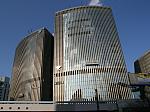 |
Seibu
Located in the Yurakucho Marion Building, the Yurakucho store of the Seibu department store chain consists of nine floors, offering a wide array of fashion and accessories |
|



